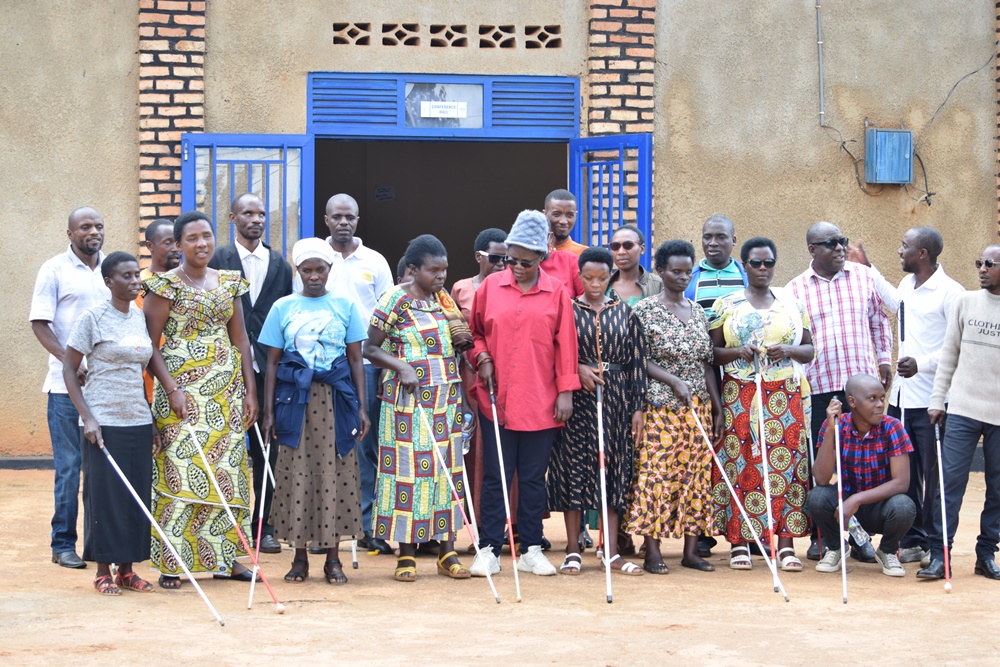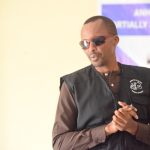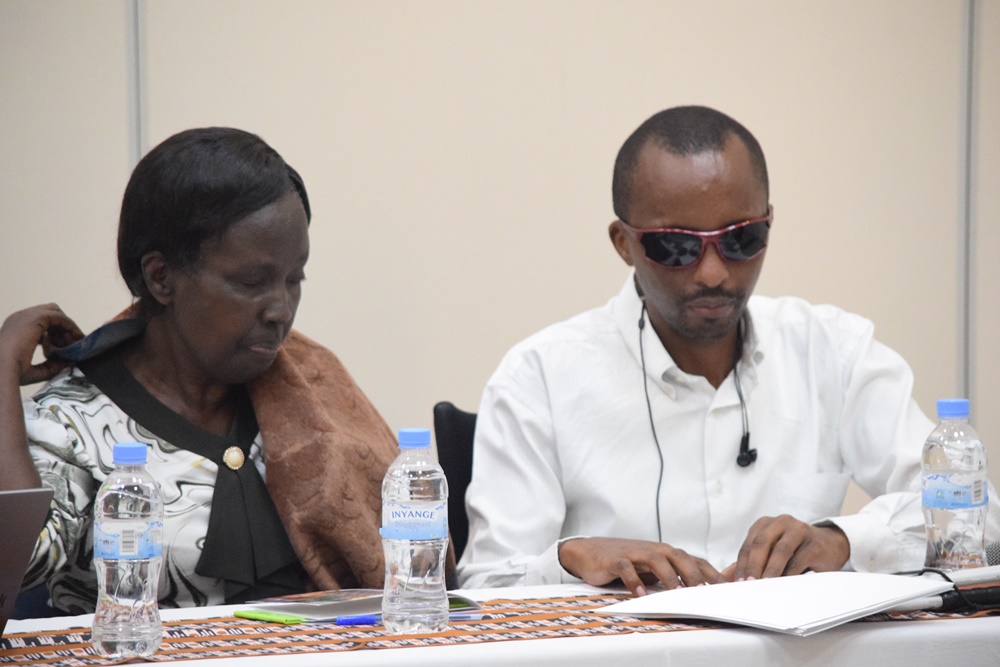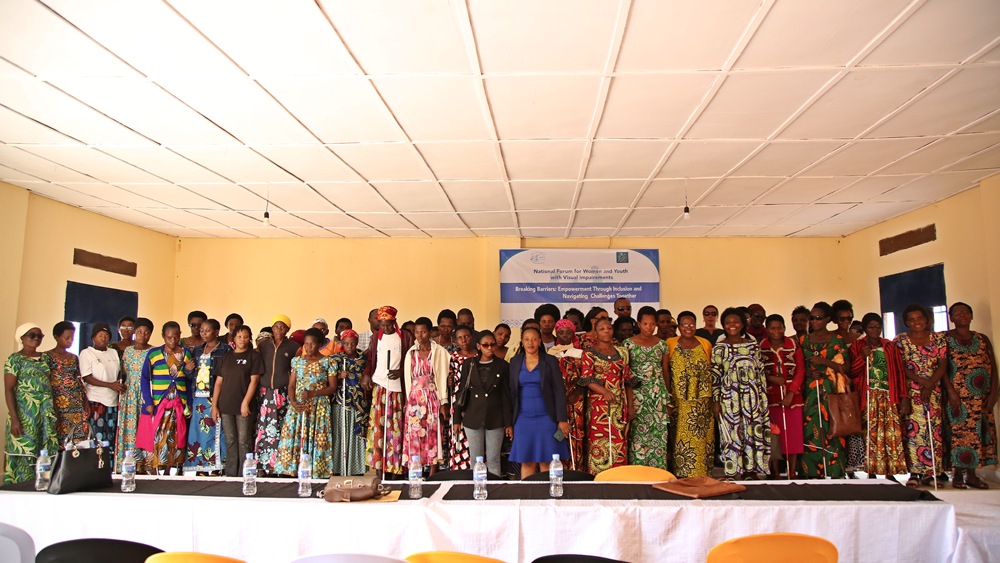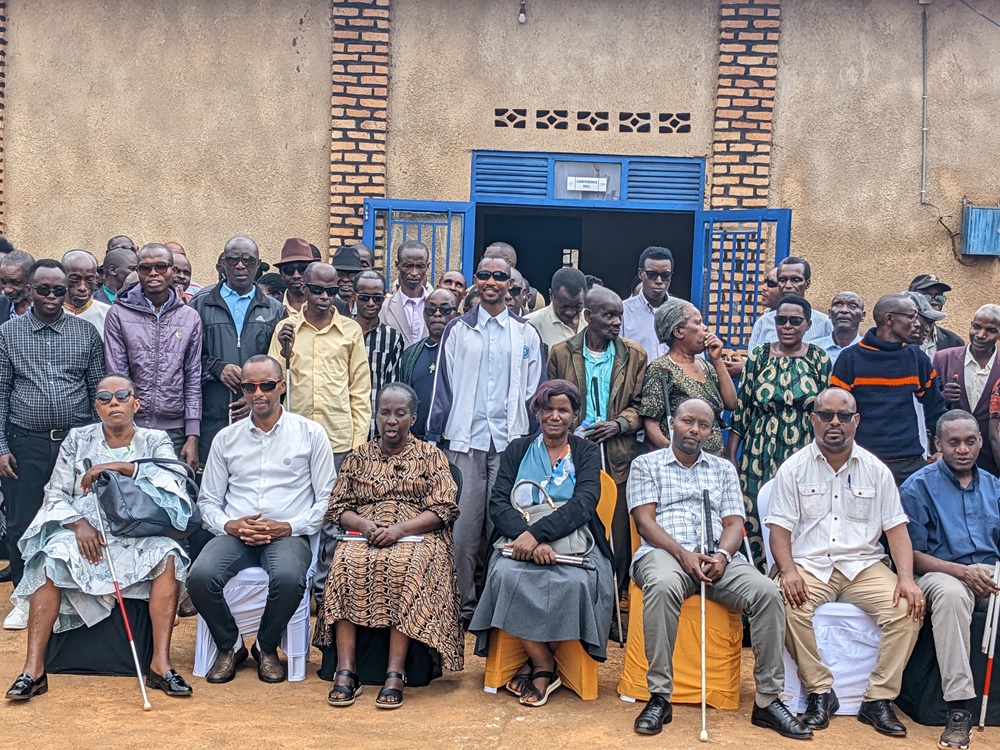Today, Rwanda Union of the Blind (RUB) speaks from the…
RUB Trainers Pledge to Improve Services for Visually Impaired Persons in local branches
Blind Community Facilitators who are working with visually impaired persons in districts across Rwanda have pledged to enhance the quality of their services and expand efforts that support blind community members to improve their daily lives.
The commitment follows a two-day capacity-building workshop concluded on November 26, 2025, at the Masaka Resource Centre for the Blind (MRCB) in Kicukiro District. The training was organized by the Rwanda Union of the Blind (RUB).
The workshop aimed to strengthen the skills of community facilitators who serve as direct links between visually impaired persons and essential community-based support services. Participants reflected on gaps in their past work and outlined new measures to improve coordination, reporting, and practical assistance offered to beneficiaries.

Gaudence Barakagwira, a Community Facilitator from Cooperative Abadacogora Musenyi in Bugesera District, said the training helped clarify the core values and responsibilities of their role.
“Over the past two days, I learned more about the importance of a community facilitator and the ethical values that guide the work,” she said. “I realized I needed to change how I prepare and submit reports. Previously, I sent them directly without first informing the association president. I now understand that every official communication must follow the right channel.”
Barakagwira added that community facilitators play a vital role in helping visually impaired persons improve their living standards. This includes training beneficiaries on kitchen gardening, personal hygiene, household cleanliness, and mobility skills such as proper use of the white cane.
“In rural areas, these basic skills can significantly improve someone’s independence,” she said. “Our responsibility is to guide them toward general self-reliance.”

From Rubavu District, Alle Sibomana echoed the same commitment, noting that the training highlighted gaps in their previous reporting structure.
“We learned that our reports should not go directly to RUB,” he said. “The cooperative president must first notify RUB’s Executive Director before the report is prepared and submitted. This improves accountability and proper coordination.”
Sibomana also emphasized the need to clearly distinguish the responsibilities of community facilitators from those of advocacy committees within associations of persons with visual impairments.
“We now understand that we must not interfere with the work of the advocacy committee. Each team has its clear mandate,” he said.
According to RUB, the strengthening of community facilitator networks is essential to improving the quality of life for visually impaired persons, especially those living in rural communities where access to services is limited. The organization plans to scale up such training sessions to ensure uniform standards and better collaboration across districts.






